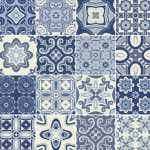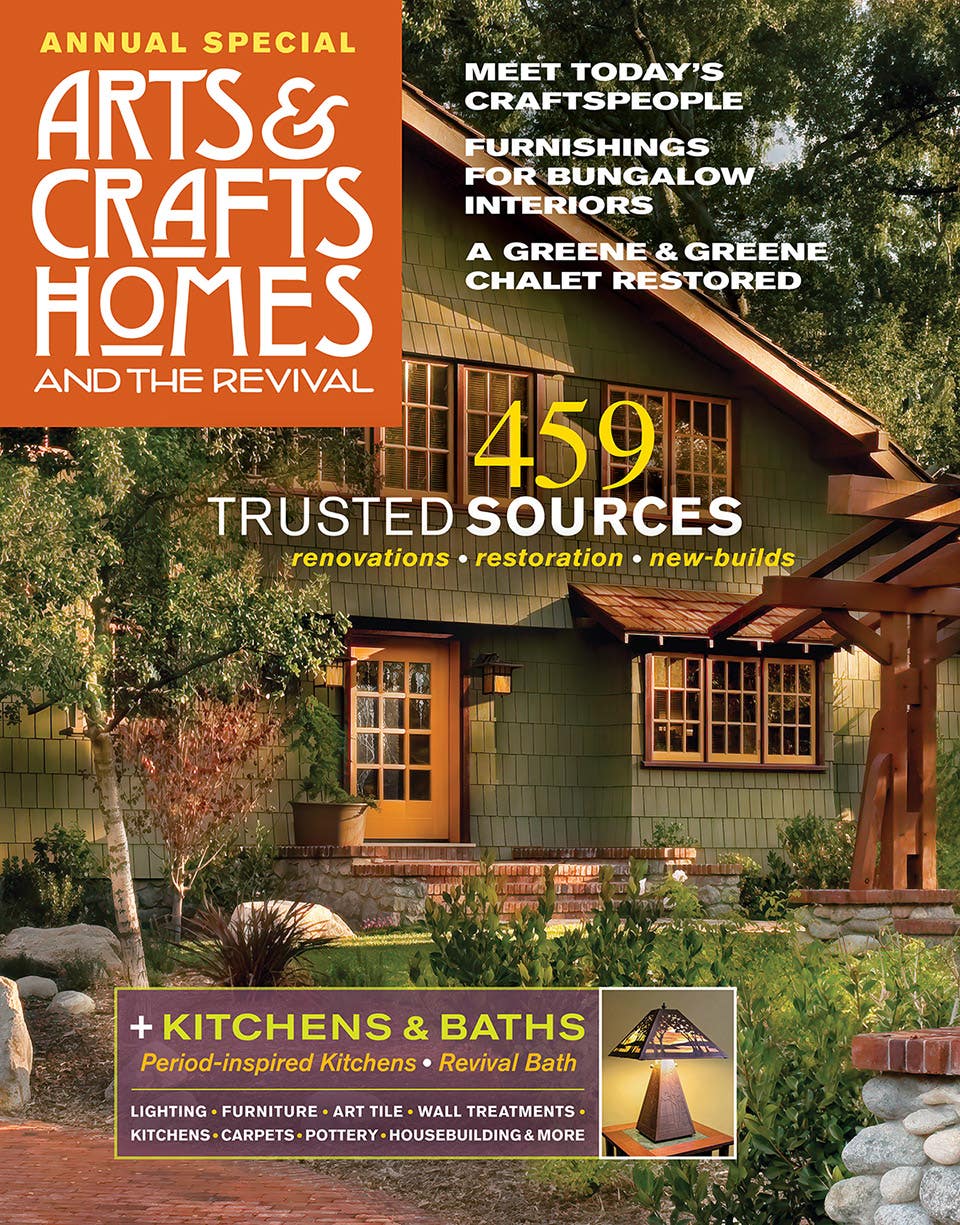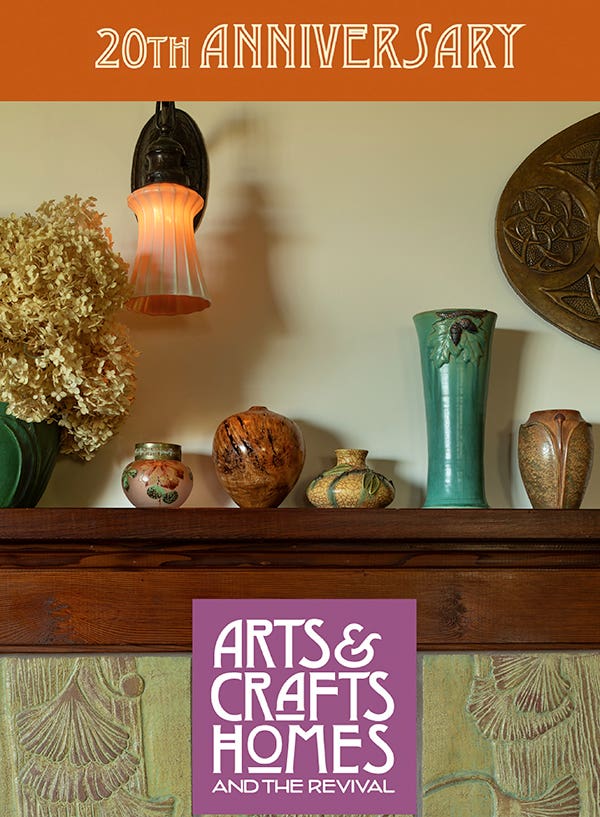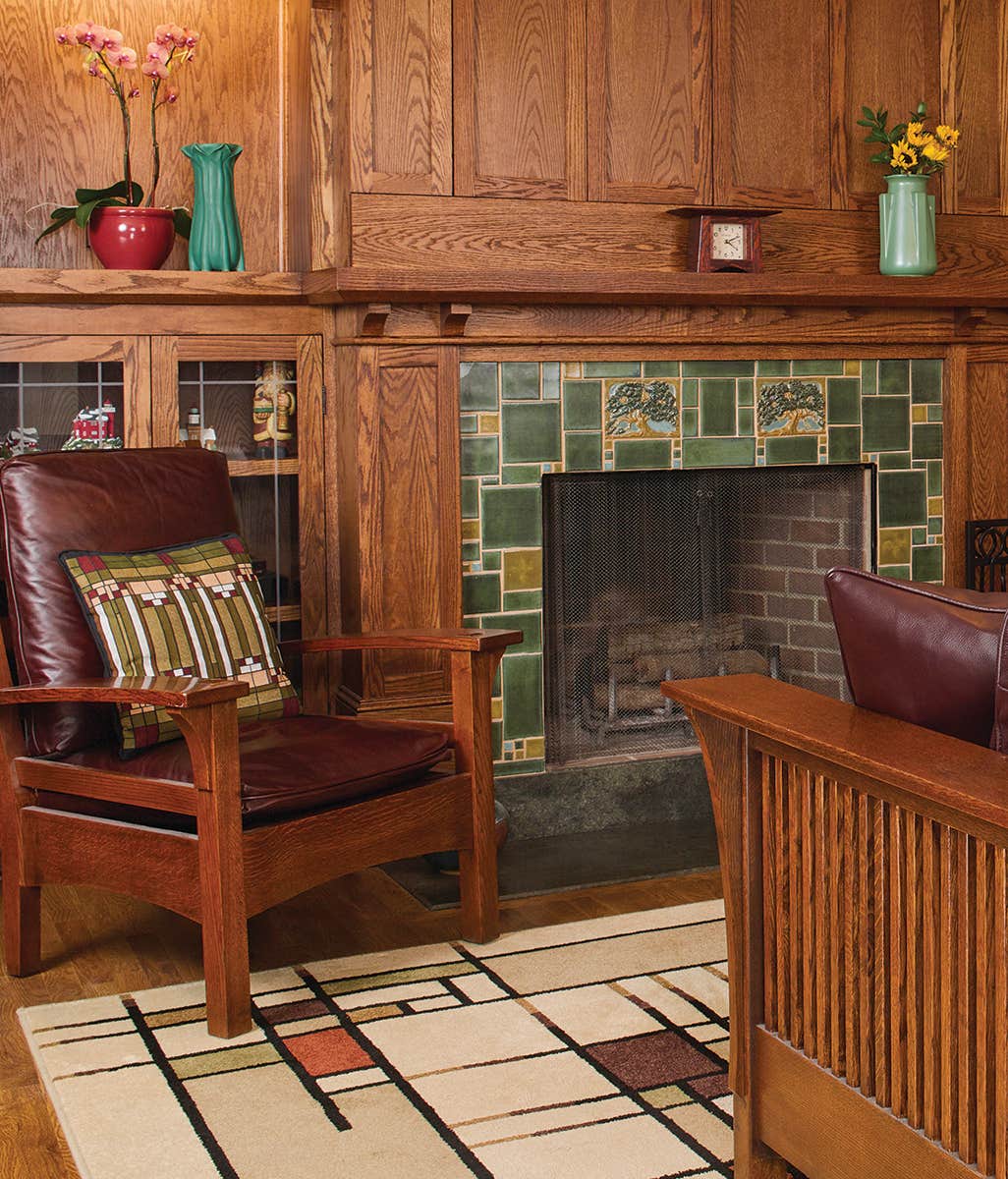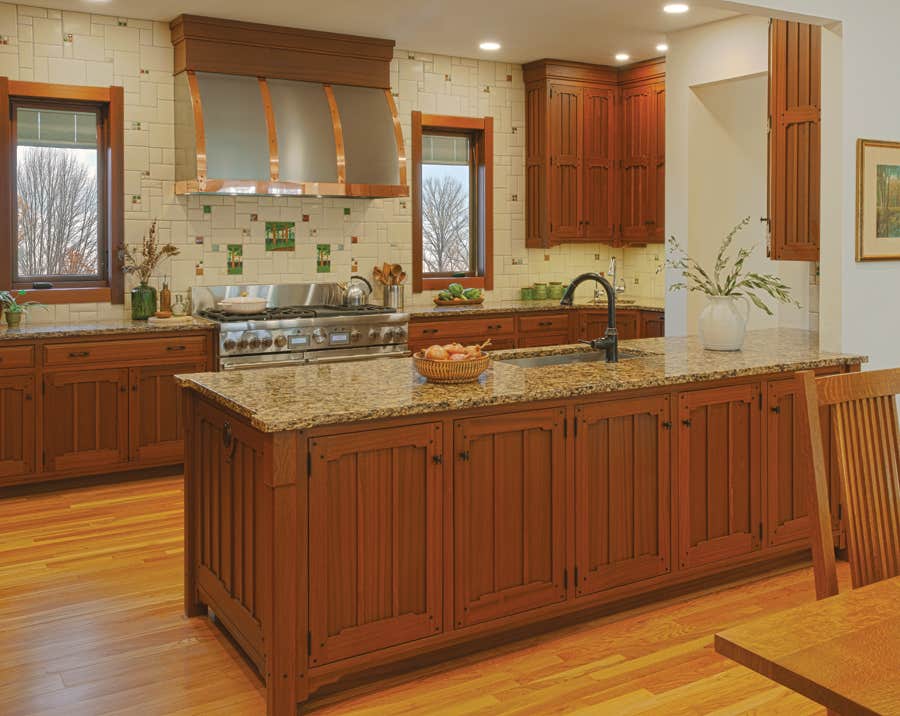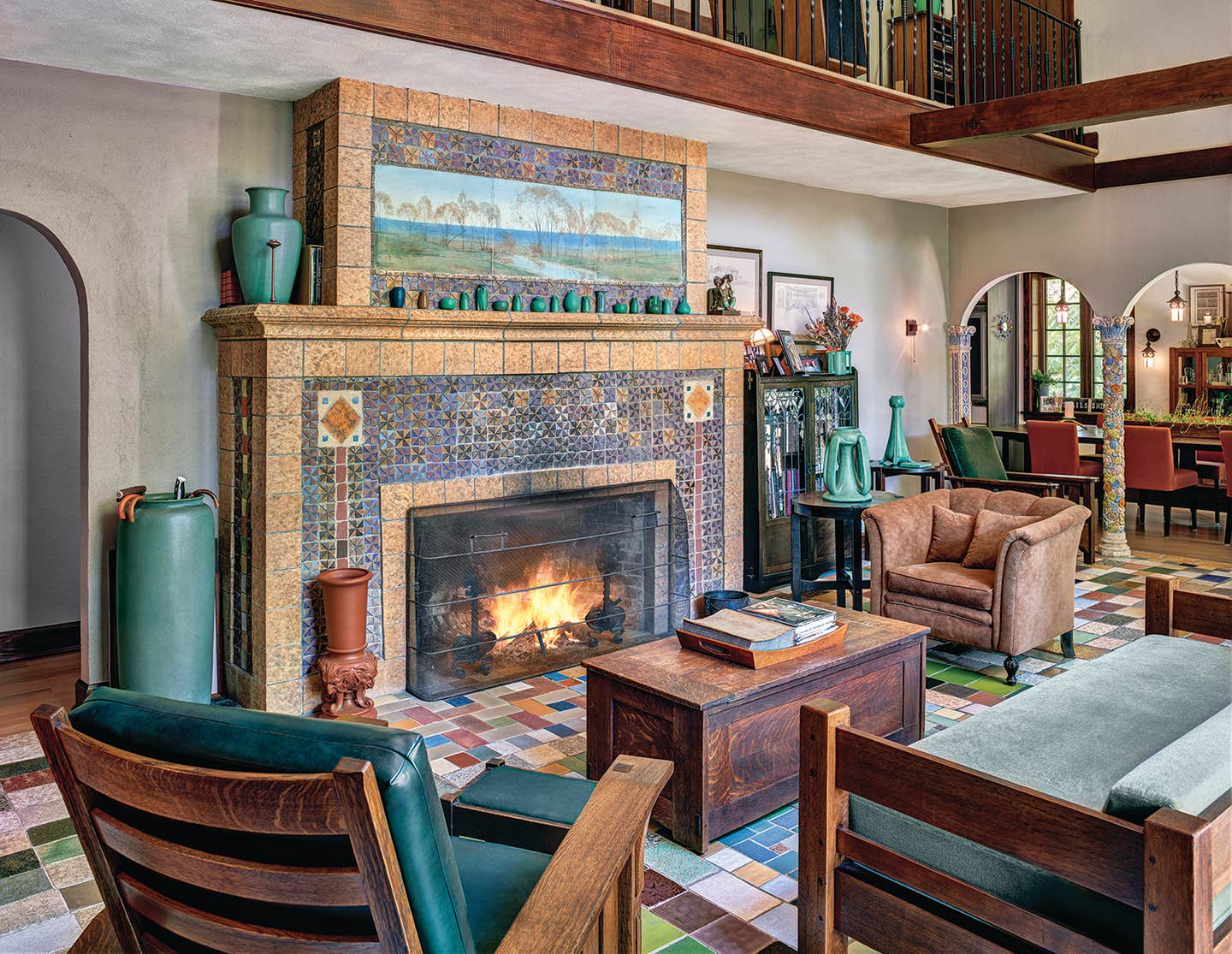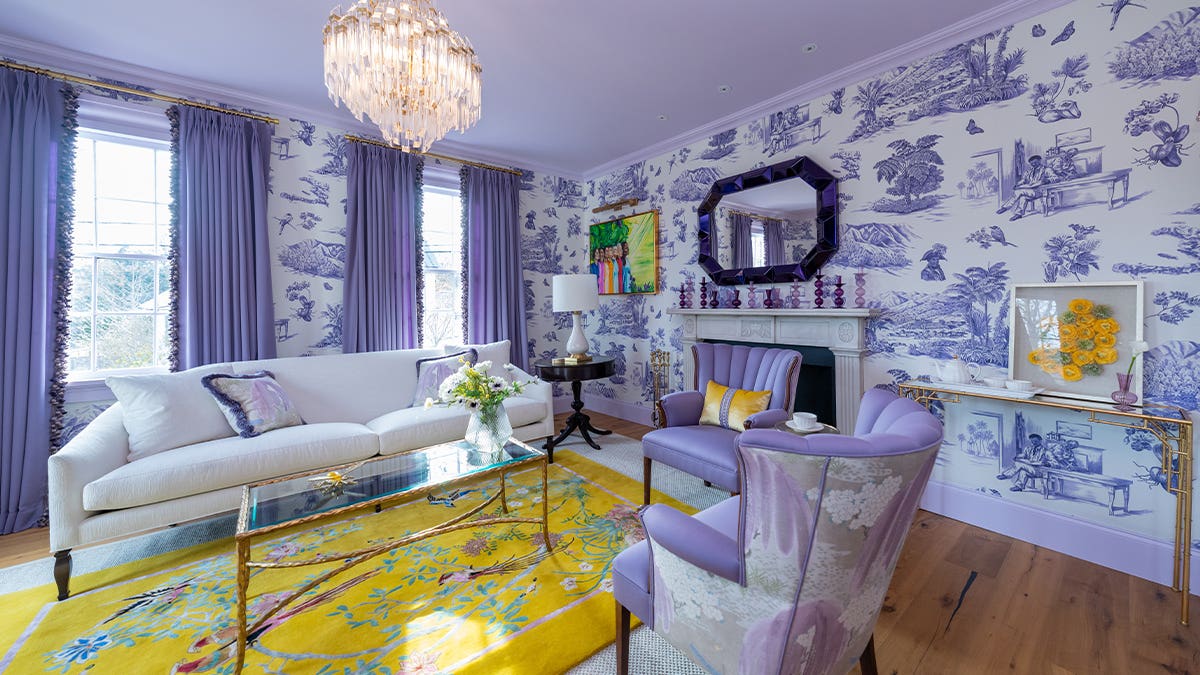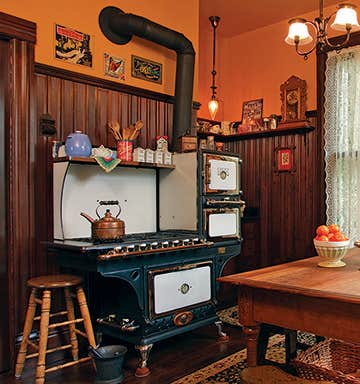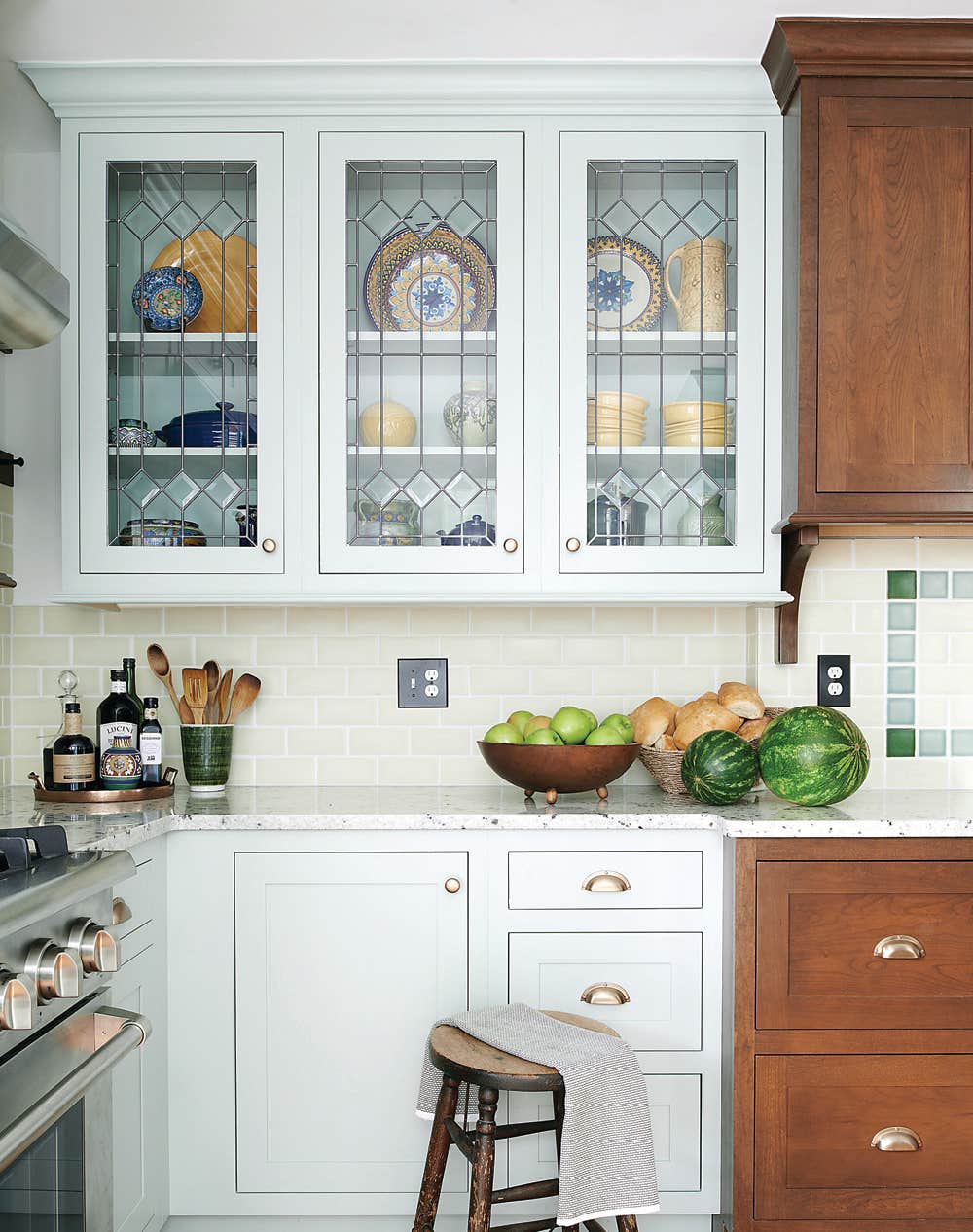Dazzling Tile for Art Deco Baths
Bungalow bathrooms before 1920 were of the “sanitary white” persuasion. Not so in the bathrooms built after the mid-1920s!
Colorful tile came first, followed in the late ’20s by colored plumbing fixtures in ivory and pastels. Color exploded in the 1930s with the introduction of toilets and sinks in orchid or mint, brilliant blues, candy pink, lavender, yellow and snazzy black, and finally red and navy blue.
Often a bright or pastel color was used with black accent tiles for an urbane look. Not all tiles were plain. Stylized floral designs and aquatic themes—fish, waves—were popular in decorated tiles.
By this time, room elements and fixtures showed the influence of Deco and Moderne design. Frameless mirrors (round or vertical), frosted glass shades on lighting fixtures, streamlined (or Deco curvaceous) fixtures, and polished chrome fittings came together in bold rooms that sparkled.
Brilliant “California” tile, often in stylized patterns inspired by Islamic art, was perfect for the Mediterranean and Spanish Colonial Revival houses built in this period. Innovations in tile manufacture and installation made tiling more affordable; magazines and plumbing catalogs extolled the colorful modern bath. In this heyday of the bathroom, many an old one was flamboyantly remodeled.
Tile types available in the 1920s and ’30s have been revived; the selection, in fact, is bigger than ever before. Choose among patterns influenced by both Hispano–Moresque design and the motifs of the Arts & Crafts movement. Styles include Spanish-influenced California tiles (Malibu and Catalina), Prairie-style designs, and hand-painted Talavera tile. Revived techniques—cuenca, cuerda seca, tubeline—are still used by small-batch artisanal studios as well as larger manufacturers. You’ll find field tile, relief tile, decos, panels, and molding tiles, in specialty glazes with opalescent, mottled, or matte finishes.
Oh—and colored bathroom fixtures are available once again, too, though not in the wide array of colors sold during the 1930s. With the revival of period-style fixtures, faucets, mirrors, and lighting, it’s easy to create an inspired period piece for your bungalow or casita. Foursquares and Tudor Revival houses also boasted colorful tiled bathrooms.
Patricia Poore is Editor-in-chief of Old House Journal and Arts & Crafts Homes, as well as editorial director at Active Interest Media’s Home Group, overseeing New Old House, Traditional Building, and special-interest publications.
Poore joined Old House Journal when it was a Brooklyn-brownstoner newsletter in the late 1970s. She became owner and publisher and, except for the years 2002–2013, has been its editor. Poore founded the magazines Old-House Interiors (1995–2013) and Early Homes (2004–2017); their content is now available online and folded into Old-House Journal’s wider coverage. Poore also created GARBAGE magazine (1989–1994), the first unaffiliated environmental consumer magazine.
Poore has participated, hands-on, in several restorations, including her own homes: a 1911 brownstone in Park Slope, Brooklyn, and a 1904 Tudor–Shingle Style house in Gloucester, Massachusetts, where she brought up her boys and their wonderful dogs.
